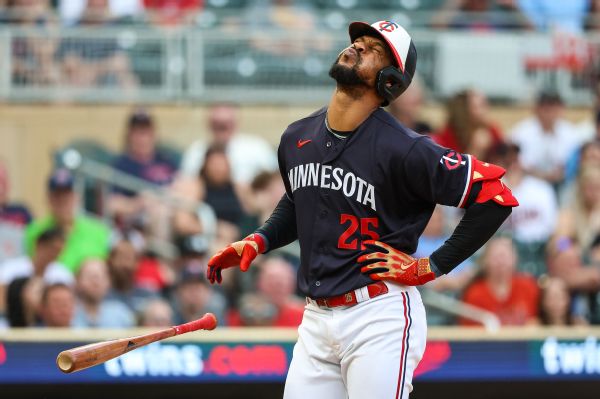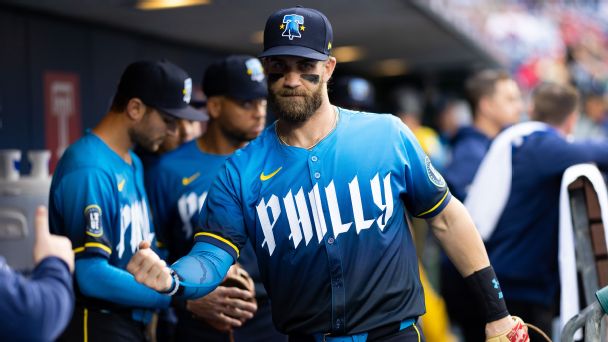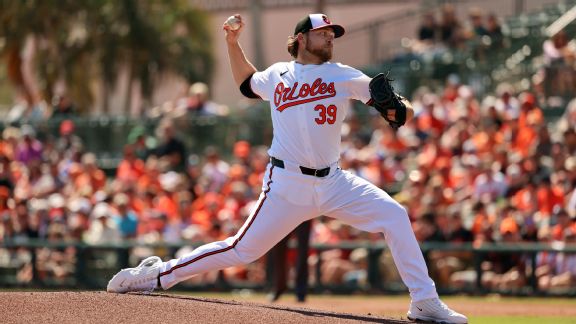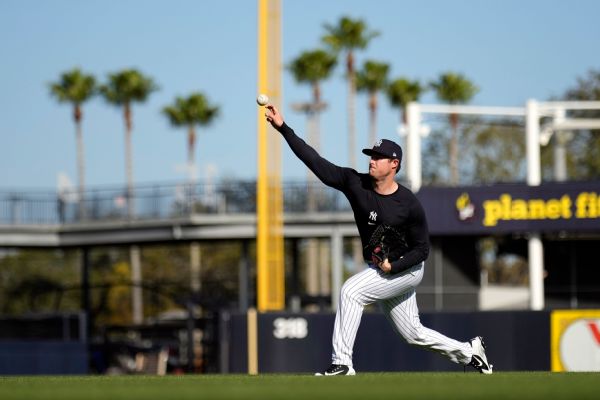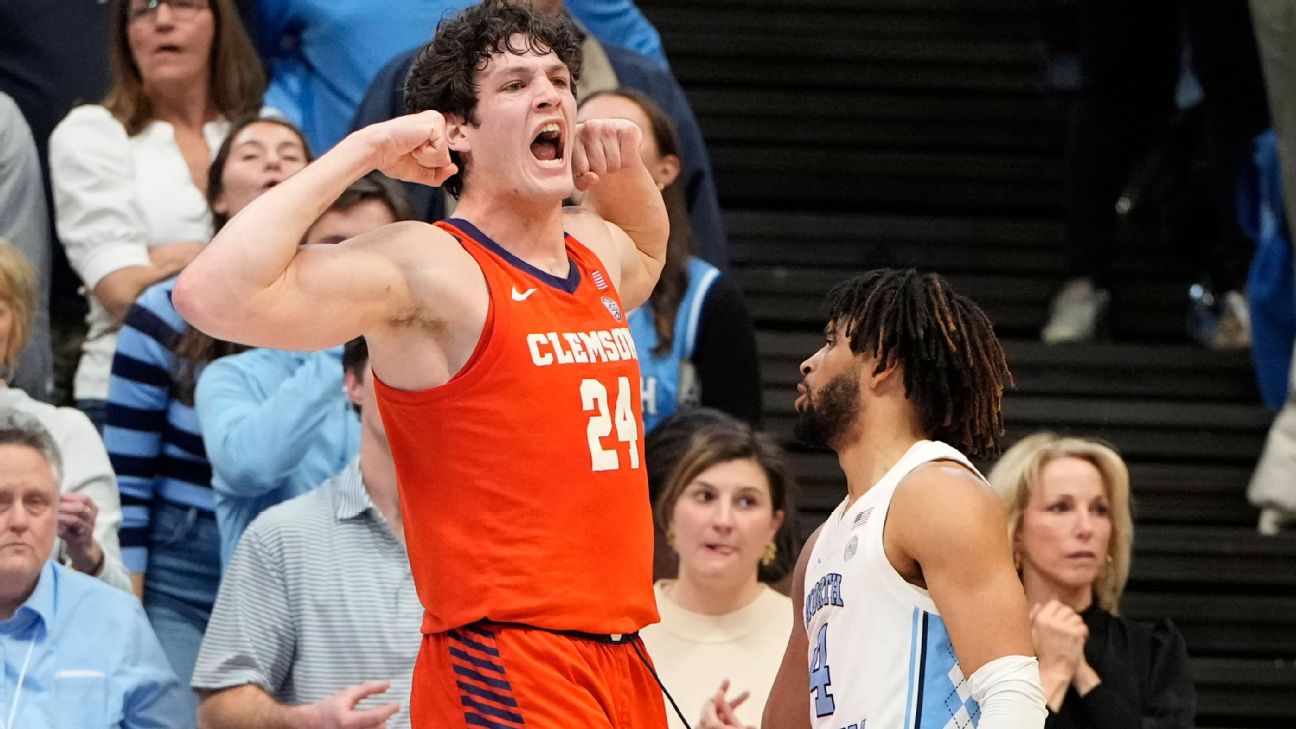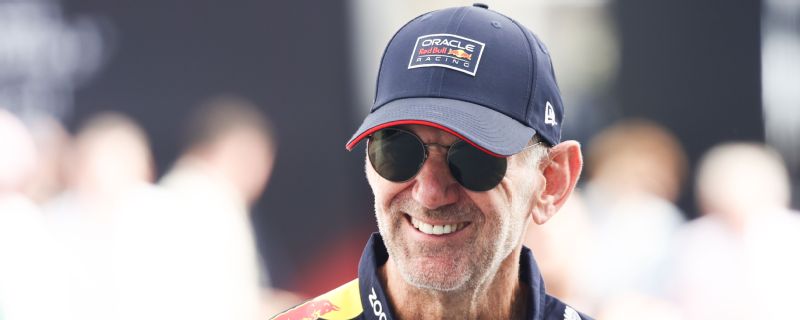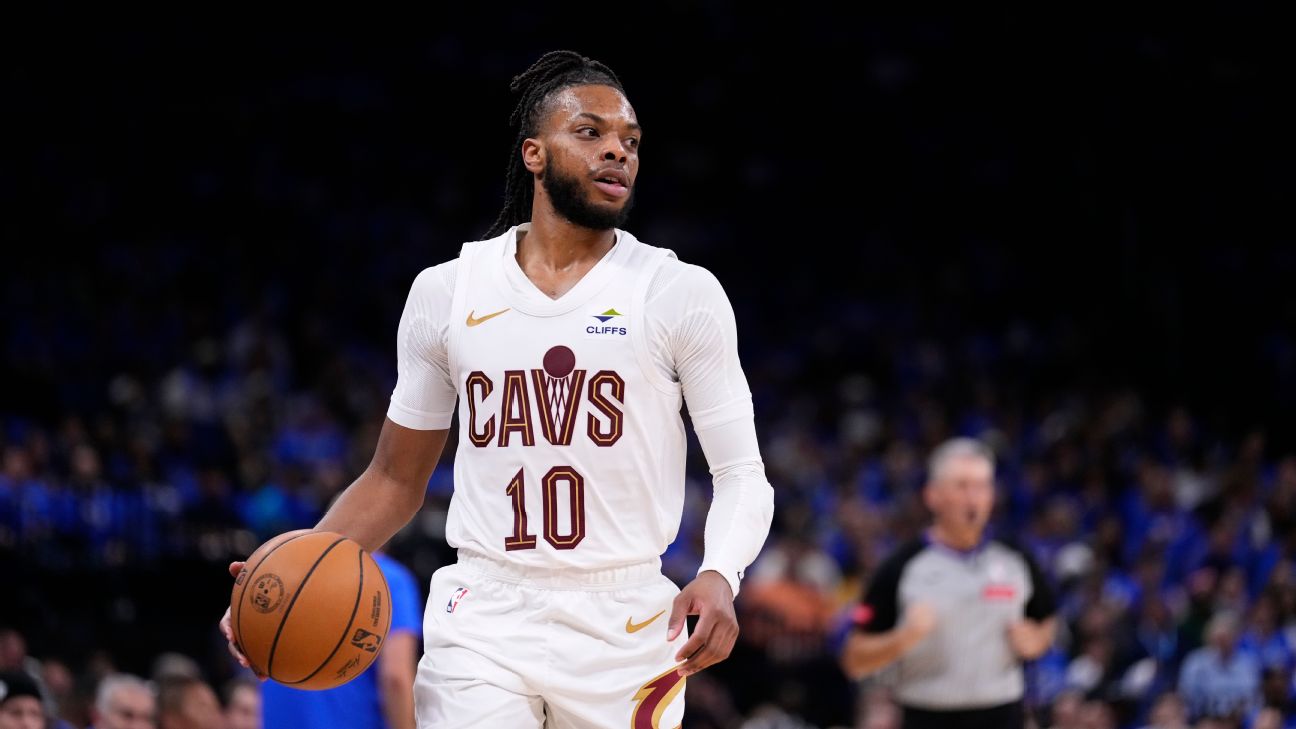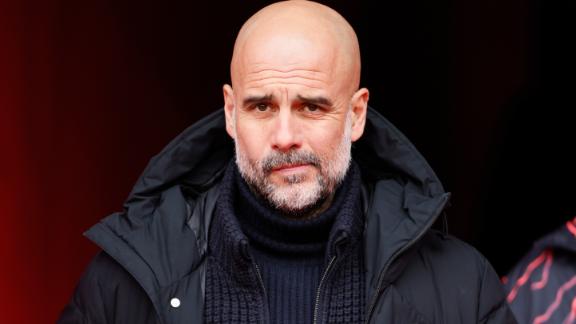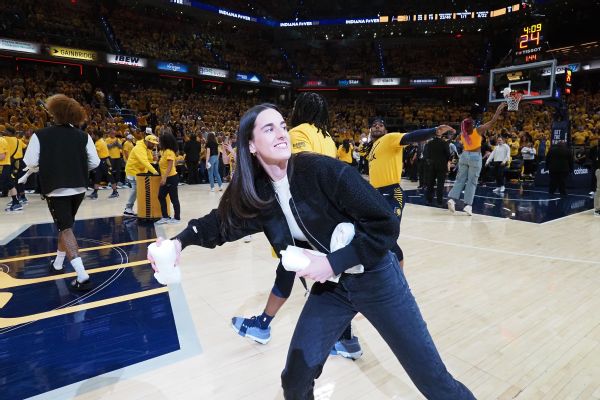![Barcelona woe v PSG 240417 [1296x729]](https://a.espncdn.com/photo/2024/0417/r1320111_1296x729_16-9.jpg)
Will Jacks achieves lift-off at No 3 as RCB attempt to soar up standings
On Sunday, Barcelona lost to Real Madrid in the 256th edition of El Clásico. It was a close game -- Barça twice took the lead, only for Madrid to roar back and win 3-2 on Jude Bellingham's injury time goal -- and it's always been too close to call between the two biggest teams in LaLiga.
Madrid have won 104 meetings between the two sides and Barça 100, with 52 draws. Carlo Ancelotti's side look all-but-certain to wrestle back the league title from Barça, who were crowned champions last year. Los Blancos are 11 points clear of their rivals at the top of the league with six games to play as they chase a 35th championship; Barça, by contrast, have won 27.
- Stream on ESPN+: LaLiga, Bundesliga, more (U.S.)
Off the pitch, however, a chasm has grown between the two. This summer, Madrid are expected to follow up the arrival of midfielder Bellingham, who signed from Borussia Dortmund for an initial €103 million, by finally completing a deal to bring in France and Paris Saint-Germain forward Kylian Mbappé, who would arrive as a free agent though with a sizable salary and signing-on fee.
Barça, meanwhile, are in dire financial straits: such is the state of things that they're not even sure if they can register contract extensions for existing players due to LaLiga's financial rules, let alone bring in new players this summer. It has been a familiar story in recent years, with player registrations often completed as late as the eve of a new season due to budget impositions from the league.
The most recent figures revealed that the Blaugrana's league-imposed annual spending cap for wages and the amortisation -- the cost of a transfer is divided by the length of the contract to apply a book-keeping value to each signing -- of transfer fees has been cut to €204m. They are in excess of that amount by over €200m -- according to LaLiga's calculations -- and must work to get that figure down until they're able to operate freely again in the transfer market.
By contrast, Madrid's limit stands at an impressive €727m.
Barça's success last year and their run to the Champions League quarterfinals, where they were eliminated by PSG, has come on the back of asset sales, famously dubbed "palancas" ("levers" in English) that funded signings worth over €150m in 2022. Despite the sales of things like domestic television rights and a stake of in-house production company Barça Studios, they remain in a delicate financial position.
"The palancas are a case of bread today, hunger tomorrow," one source said.
ESPN spoke to various people with in-depth knowledge of Barça's finances to find out how bad the situation is, whether it has improved under president Joan Laporta and what can be done to steer the club back in the right direction. Could they pull more palancas? Will they have to transfer some of their best players? Will this fan-owned entity eventually have to consider selling a stake in the club to outside investors?
Barcelona declined to comment to ESPN for this story.
'Monstrous' debtThe more people you speak to, the more complicated the financial web becomes at Barça. Most, however, agree on the reasons the Catalan club find themselves in such an extreme situation: a wage bill that ballooned after winning the Champions League in 2015, the effect of the COVID-19 pandemic and mismanagement at board level.
Another factor this season is also the move to the 55,000-capacity Olympic Stadium in Montjuic during the redevelopment of their permanent home The stadium now called the Spotify Camp Nou is the largest in Europe, holding 99,000 spectators. This has naturally had an impact on ticketing and matchday revenue streams. "Barça had a wage bill closer to €700m and Madrid around €400m [pre-pandemic]," Marc Ciria, a financial adviser who plans to run for the Barça presidency in the next election, told ESPN. "Multiply that over time, and there you see [the difference between the two clubs]."
Jaume Roures, a Catalan businessman and former CEO of Spanish multimedia group Mediapro, has twice helped Laporta with Barça's financial picture, first by contributing to the bank guarantee needed for him to become president, and later buying 24.5% of Barça Studios (the club's in-house media wing) as part of those 2022 asset sales. He has since relinquished that stake.
"The management at Barça has historically been very bad," Roures told ESPN. "When PSG signed Neymar for €222m [in 2017], Barça registered €32m in profit. The debt was already monstrous then. In any company, if you receive €222m [still the world record for a transfer fee] and have only €30m in benefits, you get fired.
"Admittedly managing a football club is not the same as any other business, [due to] the pressure you are subjected to and the emotions you are handling. Madrid, though, between [club president] Florentino [Pérez] and [CEO José Ángel] Sánchez, have had a little more luck and at the same time, they've been capable of building a good team. Bellingham and Mbappé have years ahead of them. They are not just players for a couple of seasons."
It is difficult to gauge the exact scale of the financial crisis Barça are in. Ciria says it is "very serious" because costs still outstrip revenue, while the club's debt is in the billions. Including the financing for the redevelopment of Camp Nou -- Ciria thinks this should have been delayed, while Roures would have preferred a new stadium on a site within a mile of their current ground -- where Barça usually play their home games, Ciria estimates it is close to €3 billion.
Roures adds the biggest problem is the interest they have to pay on the loans and credit they have taken out. Per Barça's official accounts for the year ending June 30, 2023, they have liabilities totalling €2.7bn, which includes short- and long-term debt as well as the financing for the new stadium.
Laporta, who recently celebrated three years in his second distinct term as president, inherited the disorder from the previous board. His first move was to take out a €600m loan from Goldman Sachs to help spread out debt repayments. Next came the palancas, which saw Barça sell a 25% stake in their LaLiga television rights and 49% of Barça Studios in 2022. A league source says, per the club's accounting, those asset sales were worth €808m in 2022-23 and around €300m in 2021-22. That money was mainly used to increase the club's spending limit with the league, allowing them to sign Robert Lewandowski, Raphinha and Jules Koundé for a combined €150m. Yet Ciria believes more should have been done to reduce the debt at that time.
"It is worse," Ciria says when asked to compare the situation in 2024 against when Laporta took office. "Because now we have sold assets, we haven't had the sporting success we expected and in addition, the loan and credit repayment dates are much closer.
"Look, in 2021, we were looking at bankruptcy. That situation was solved, so in 2022-2023 things were better, but now, the financial obligations are bigger, there are fewer assets and therefore, objectively, if this was a company, we would say that Barça are weaker in terms of tackling a crisis now than [they were] in 2021."
What is Barcelona's spending limit?Last summer, Barça's headline signing was Ilkay Gündogan, who arrived as a free agent (with no transfer fee required) from Manchester City. There was no money available to sign the defensive midfielder that manager Xavi Hernández had demanded, with former Barcelona youth player Oriol Romeu arriving instead as a stopgap for €3.5m from Girona -- a move the player himself helped fund. The financial problems off the pitch are very much holding back planning on it.
Even in 2022, the summer of the palancas, it was only on the eve of the season that Barça were able to register the majority of their signings. That is because Spanish clubs must adhere to LaLiga's spending cap, which is roughly determined by the difference between a team's revenue minus non-sporting outgoings and debt repayments. The final figure accounts for the maximum amount clubs should spend on wages, bonuses and amortisation payments on transfers across a season.
Barça's limit has been more up and down than a roller coaster. It dropped to a negative number during the pandemic, rose back up to around €600m after asset sales and has now been reduced again to just over €200m. Sources told ESPN that Barça are currently spending over double that cap, somewhere between €400m-€500m, and therefore they remain subject to significant financial scrutiny. It means they can keep the players they have, but are only allowed to spend a percentage of what they save in salaries or raise in transfer fees, with the percentage varying depending on how big the saving is.
"Looking at Barça's evolution, [spending has] dropped to €500m-ish, so it's going down," a league source told ESPN. "They're building a new stadium and will have more income. So they're doing what they have to do to get out of where they were.
"Looking at costs, infrastructure projects and capacity for growth, they'll sort out the situation. Another thing is the immediate impact. They have to be 'in quarantine' while they sort that out. Having a debt isn't bad if it's controlled within parameters. Looking at Barça's project, they'll pay the debt with the new income."
European football's governing body UEFA, meanwhile, fined Barça €500,000 last July for wrongly reporting profits in the 2022 financial year that were not considered as relevant income. UEFA has not said precisely what the profits wrongly reported by the club related to, but sources suggested to ESPN it was Barça's inclusion of the sale of future TV rights as profit in their 2022 accounts.
Where Barcelona can make moneyProgress in the Champions League has provided an additional income boost. For reaching the quarterfinals, Barça will receive around €50m in prize money, plus more from the television pool and the ticketing and match day revenue from knockout games at the Olympic Stadium. Some tickets for last week's game against PSG were being sold via official channels for as much as €500; however, their European exit has denied them a place at the inaugural Club World Cup next year, which would have delivered an additional payday.
Barça will also look to move on members of the squad who do not play regularly and players who have spent these season out on loan. Sergiño Dest (on loan at PSV Eindhoven) and Ansu Fati (with Brighton & Hove Albion this season) are among those stars who could help them raise a transfer fee by leaving the club on a permanent basis.
In recent years, the club have also opted to add midseason and postseason friendlies to an already hectic schedule, playing in Australia, Japan and the United States. Each game has pocketed the club around €5m. They will return to the U.S. for preseason this summer -- with a Clasico scheduled in Miami, home of former club stars Lionel Messi, Jordi Alba, Sergio Busquets and Luis Suárez -- but a possible postseason friendly is complicated by the fact that Euro 2024 and the Copa América both take place in June.
Therefore, the reality is that tougher decisions will have to be made.
The quickest way to raise capital would be through player transfers. Sources say the club would prefer not to lose important squad members, while players are also reluctant to move on. Other options are being pursued first. There is still the possibility of more asset sales; they could sell more television rights or a stake in Barça Licensing & Merchandising (BLM), the club's merchandising arm.
"I am aware that the club are trying to sell more [LaLiga] television rights," Ciria claims. "They have sold 25% and can sell up to 24% more, which would be worth around €600m. Instead of making €1bn over 30 years, you get that €600m now and the investor makes €1bn. With 25% sold, the club lose about €40m per year, so if they sold 49% in total, it would be €80m lost in revenue each season.
"Another option is transfers, letting two or three top players go. [Ronald] Araújo, Frenkie de Jong and Fermín [López], for example, and you raise €200m.
"Selling BLM or a stake in it would be a last resort, but remember if the board's mandate ends with losses, they have to cover that themselves [per the club's legislation], so they are going to sell whatever, right? BLM is a project that could bring in €400m. So [the message should be] 'don't touch, don't sell.' It's so productive. It's the best strategical wing at the club in terms of making money."
The silver lining to Barça's financial situation has been the emergence of young players from the academy, including Gavi, Lamine Yamal and Pau Cubarsí. Sources insist that offloading the club's brightest young prospects won't be necessary, with other operations also being explored.
One of those is the changing of the kit supplier. Nike produces Barcelona's shirts, but the relationship between the club and the American firm is tense. Barça have reportedly tried to push the cost of the deal up and have even threatened to unilaterally break the contract, which runs until 2028. In the meantime, they sought a brand who would not only pay them more annually, but who would pay them a lump sum now to provide an immediate revenue boost. Club president Laporta even threatened to bring production completely in-house, a decision several sources said would be "risky" -- for now, sources expect the link with Nike to continue.
However, at the crux of Barça's problems is Barça Studios. The club sold 24.5% stakes in the in-house production company to Roures' business Orpheus and Socios.com in 2022 for €100m each. It's unclear how much of that money was ever paid. In 2023, Libero (along with several partners) bought a 29.5% stake in Barça Studios, now rebranded as Barça Vision, for €120m. As part of that deal, Roures says Orpheus were completely bought out.
Libero, though, never fronted up the initial €40m payment, per sources, which left Barça's financial predictions for the 2023-24 season short. It is not just the missing payment that is the problem; the valuation of the company, now officially associated to the club and included on their accounts as benefits, is €400m, 51% of which pertains to Barça. Therefore, some sources say a failure to find a replacement buyer for Libero before June 30, when the current financial year concludes, could create a shortfall north of €200m. Ciria says he believes Barça are seeking a buyer in Saudi Arabia, while Roures says the club are optimistic of solving the problem before June 30.
"There are over two months to go and a lot happens in football in that time -- especially at a club of this dimension," he said. "When we reach June 30, I will begin to worry if there is no news."
Roures added that Barça Vision is now part of a bigger company that Barça hope will be listed on NASDAQ through a Special Purpose Acquisition Companies (SPAC). That company is valued at €1bn and includes everything Barça do related to in-house production, Web3 (a speculative next version of the internet), NFTs and everything in the digital sphere. Without the Libero payment, though, the NASDAQ listing has been delayed and Barça have been handed an extension to find another investor. It is all so layered and complex that even Eduard Romeu, who recently stepped down as the club's economic vice president, alluded to it as "financial engineering."
"For me, the possibility that Barça, even though through a SPAC, appear on NASDAQ with a valuation of €1bn is important," Roures explained. "It puts the Barça brand on a level where no one in the world of sport is. As it's through other investors and shareholders, there is also very little risk. It would be a great operation for the club, even more so in this delicate financial situation."
Could the club deviate from 'socio' model?Barcelona remain 100% owned by the members, known as "socios," who pay an annual quota. If all of the above fails, the elephant in the room is selling off a part of the club. It is a taboo subject among most socios, who are unlikely to ever allow it to happen, given Barça's unique position as a fan-owned entity. Socios have voting rights and a controlling voice in the direction of the club, setting them apart from their rivals. They weigh in on club matters like electing the president, as well as having a vote on other big issues and operations.
Roures is one of the few people who is willing to say it is what Barça should do, going so far as to suggest it is now the only solution to their quandary.
"I propose that the club, maintaining the ownership structure with the members, must sell a part to the stock market," he said. "I say that for various reasons. Firstly, with a sale of 25%, Barça can bring in €1bn or more. With that, you clear debt and look at the future in another way.
"But, in my vision this carries an added advantage, which is related to the control of the management. Football clubs in general, those owned by members, not just in Spain, are businesses, but very specific businesses. Football feeds off emotions. It makes it difficult to run things adequately. When Laporta was elected in the financial situation the club was in, in a normal company, you reduce costs in all areas, have a spell of little spending, optimise revenue, fire people ... they are all things done in traditional companies.
"If you have 20%-25% on stock market, not sold to investors, on the stock market, the stock market obliges active and transparent management. There have to be monthly updates, an end of year an audit ... You have to be very transparent. I think this mechanism would be good for Barça and a club of these characteristics.
"I think it's the only solution. If we are not capable of resolving the debt issue, however well things go, in three years Barça will have problems managing the monumental debt they have."
Most sources and socios ESPN spoke to are fiercely against selling part of the club in any circumstances. "As the rest of Europe's clubs are sold off, there are very few that maintain the idiosyncrasy of being fan-owned," Ciria said.
"At Barça, you have the social element, the country [the Spanish region of Catalonia] and the sporting factor. Social? Supporters' clubs, fans around that world that represent and feel Barça, around 400 million people. Country? You will not find another institution in Catalonia like Barça. Sporting? Our own DNA and understanding of football. All that, if you sell off the club, in my option is lost."


